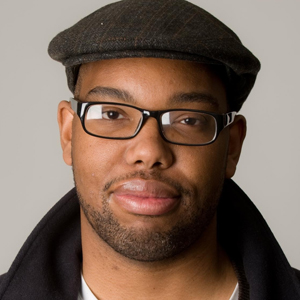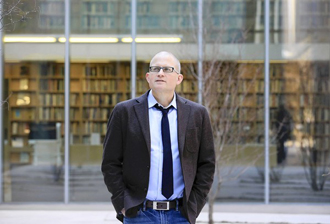For Sunday December 27, 2015
Lectionary Readings (Revised Common Lectionary, Year B)
1 Samuel 2:18-20, 26
Psalm 148
Colossians 3:12-17
Luke 2:41-52
Need a last minute gift idea?! Want a good read for the holidays? JwJ reviews 52 books a year, one every week. While there's no accounting for personal taste, here are my "best books" of 2015.
Douglas Boin, Coming Out Christian; How the Followers of Jesus Made a Place in Caesar's Empire (New York: Bloomsbury Press, 2015), 206pp.
When Christianity was legalized in the year A.D. 313, believers comprised about 5-10% of the Roman Empire's population of some 60 million people. A hundred years later, one scholar estimates that they accounted for only 3% of the population (pp. 2, 141). How did this minority movement accomplish that?
Edward Gibbon said their success was based upon their "intolerant zeal" of Roman ways. That is, the new faith was incompatible with and "obstinately different" from the old ways of the ancient empire. This trope was an undeserved stigma, says Boin. Others suggest that it was the "inherent appeal" of the Christian message in a spiritually bankrupt empire.
Douglas Boin, a classicist, historian, and archaeologist at St. Louis University, rejects this black-and-white binary way of thinking, and offers instead a more nuanced interpretation. In his view, there were many, different ways to be both Roman and Christian. He argues that the early believers lived hyphenated lives and "juggled their identities in highly creative ways." They lived in a middle ground characterized by many shades of gray.
For the most part, early believers were just ignored, even "entirely invisible" when judged by their archaeological remains. New scholarship suggests that they weren't as persecuted as some standard histories suggest. In addition to confessing their faith, believers served in the military, went to the games, enjoyed the festivals, and attended the theaters, just like their neighbors. For them, Rome wasn't the whore of Babylon but a fascinating place to live. In short, they did their best to fit in with "shared civic values," which is just what we read in the epistles — wives were to obey their husbands, slaves their masters, and all believers were to "honor the emperor."
Boin discerns a pattern not of hostility and withdrawal, not a zero sum game, but one of engagement and dialogue. Christian success was not "dependent on someone else's conversion. It was dependent on conversation." By the late fourth century, though, this civic tolerance by Christians had eroded into violent cultural clashes — the burning of a synagogue, the destruction of a pagan temple, and government legislation that punished non-believers. We've been living with the sad consequences ever since.
 |
|
Ta-Nehisi Coates.
|
Ta-Nehisi Coates, Between the World and Me (New York: Spiegel and Grau, 2015), 152pp.
Toni Morrison has called Ta-Nehisi Coates' new book "required reading." That's usually just a dust-jacket blurb by the marketing department, but this time it might be true. In her review for the New York Times, Michelle Alexander (The New Jim Crow) says she read the book twice. In November the book won the 2015 National Book Award in non-fiction, and just two months after its release in July of 2015, Coates (b.1975) won a MacArthur "Genius Grant."
Coates' book is a 152-page letter to his 15-year-old son Samori that's rooted in a harsh critique of race history in America, both past and present. "How do I live free in this black body?" he asks, given that progress in America remains predicated upon systemic violence against blacks? Race isn't a biological or ethnic category for Coates, it's a carefully crafted social construction built from the likes of slavery, segregation, Jim Crow laws, mass incarceration, red lining, and numerous federal policies.
The violence is exacerbated by the American myths of exceptionalism and innocence. There's also the power of a comforting national narrative that Coates calls The Dream, which is, in fact, our collective delusion. There's nothing broken or aberrant here, nor should we be surprised, for the system is working just like the Dreamers have planned.
Coates recalls his experiences of growing up in West Baltimore. His adolescent years on the streets and in the schools and black churches felt like a parallel universe, a "cosmic injustice," compared to the lives of the Dreamers. New experiences at Howard University (his personal "Mecca") expanded his horizons, as did moving to New York City and trips to Paris. But the rage returned when a black classmate was murdered by a black policeman.
There's no consolation here. Coates doesn't tell his son that things will get better. There's little encouragement to be had from genuine progress, like electing a black president twice (cf. Eugene Robinson, Disintegration). He feels trapped in his own carefully constructed and alternative "weaponized history," and "tied to old ways." It's naive to hope the Dreamers will change. He has no religious faith or political hope that justice will be served. He's full of fears, and even a sense of powerlessness: "We cannot will ourselves to an escape on our own... There is no velocity of escape." He offers no answers, just many complicated questions.
This feels like an implacable destiny and a recipe for defeatism. At best, Coates counters The Dream with "The Struggle." The object and goal of the Struggle will likely "escape our grasp," but there is wisdom to be found at the bottom of the well. The Struggle has meaning in and of itself; it "assures you an honorable and sane life." The Struggle, Coates tells Samori, "is really all I have for you because it is the only portion of this world under your control."
 |
|
Atul Gawande.
|
Atul Gawande, Being Mortal; Medicine and What Matters in the End (New York: Metropolitan Books, 2014), 282pp.
Atul Gawande is a general surgeon at Brigham and Women's Hospital in Boston, a professor at Harvard Medical School, and the author of three previous best-selling books — Complications; A Surgeon's Notes on an Imperfect Science (2003), Better: A Surgeon's Notes on Performance (2008), and A Checklist Manifesto; How to Get Things Right (2009). In her own review, Marcia Angell, former editor in chief of the New England Journal of Medicine, calls Being Mortal Gawande's best book yet.
Gawande says that instead of acknowledging "the natural order of things," we have been seduced by "the prevailing fantasy that we are ageless." Instead of acknowledging the limits of medical treatments, we have turned mortality into an almost purely "medical experience," which in turn has led to denial, dishonesty, arrogance, and, for the elderly and the dying, horrible social isolation. Whereas the vast majority of people used to die at home among a multi-generational family, by the 1980s only 17% did. This reduction of mortality to medicine, says Gawande, has done tremendous harm instead of healing.
As in his previous books, most of Gawande's narrative is composed of clinical anecdotes from his medical practice. This makes for simple, powerful, and at times very disturbing story-telling. He also writes at length about his own family's struggles with aging and dying — his wife's grandmother, his grandfather in India who lived to be 110, and, most poignantly, his own father. Both of his parents were physicians, so between the three of them they had 120 years of medical expertise, but when his father was diagnosed with a tumor in his spinal cord, they "stepped through the looking glass." They had to acknowledge that "we were up against the unfixable. What were we to do? It seemed a mystery."
There are positive alternatives to spending all of your money and your last days drugged out of your mind, hooked up to multiple machines, and isolated in the ICU. Gawande explains the history of nursing homes, hospice care, assisted living, and even other creative alternatives. "There are people in the world," he writes, "who change imaginations." Acknowledging your mortality is a tremendous gift. It reorders your desires. It narrows your focus and gives you a new perspective that's rooted in reality instead of futile medical fantasies. Medical interventions are only justified, says Gawande, "if they serve the larger aims of a person's life. When we forget that, the suffering we inflict can be barbaric. When we remember it the good we do can be breathtaking."
Grant Wacker, America's Pastor; Billy Graham and the Shaping of a Nation (Cambridge: Harvard University Press, 2014), 413pp.
By the time that Billy Graham (b. 1918) retired from public ministry in 2005, he had shaped the religious landscape of modern America more than any person except Martin Luther King, Jr. After graduation from Wheaton College in 1943, then his 1949 crusade in Los Angeles, by the 1950's he was a "national personality." Grant Wacker's book isn't a conventional biography. He explores larger questions, like how and why Graham matters, how he shaped evangelical religion, and how evangelical religion related to American culture. He looks at Graham through eight "interpretive lenses" — Graham as preacher, icon, southerner, entrepreneur, architect, pilgrim, pastor, and patriarch.
Wacker admits that he's sympathetic to his subject. He almost always gives Graham the benefit of the doubt, but he's not uncritical. There's no meaningful criticism of Graham that he does not raise. Graham made "serious mistakes," most notably his odious remarks about Jews that were released on the Nixon tapes in 2002. His preaching could be powerful but also "soporific." He was a person of genuine humility who also mastered the art of self-promotion. He called himself a country preacher while befriending eleven successive presidents and some of the wealthiest and most powerful people in the world. He projected the image of a family man, but was an absentee father who traveled eight months a year. He built the BGEA into a massive empire, then made his son the President and CEO.
These and other contradictions have generated many "polarized interpretations," and yet Graham is routinely listed as one of the most admired people in the world. Wacker argues that he was a man of "uncompromised integrity" and "manifest sincerity." Graham changed his views on various issues across the decades. He expressed his regrets. He admitted his mistakes and tried to learn from them. He never pretended to be a scholar or an intellectual. He was, for his generation, "America's pastor" like no other.
 |
|
Christian Wiman.
|
Christian Wiman, Once in the West: Poems (New York: Farrar, Straus, and Giroux, 2014), 105pp.
Christian Wiman's new book of poetry (his fourth) follows his memoir called My Bright Abyss; Meditation of a Modern Believer (2013). In that "mosaic" of "prose fragments," he explored his experience of falling in love in the shadow of death while trying to discover what assenting to his long latent faith meant. "What I crave," he wrote, "is some speech that is true to the transcendent nature of grace yet equal to the hard reality in which daily faith operates." He sought both an "active devotion and honest modern consciousness." He wanted "to see the sanity and vitality of this strange, ancient thing" called Christian faith.
Wiman (b. 1966) is an American poet, the author of seven books, and from 2003 to 2013 was the editor of the journal Poetry, the oldest poetry magazine in the United States. On his thirty-ninth birthday, he was diagnosed with a rare form of cancer. His many treatments included a bone marrow transplant. At about the same time, Wiman fell madly in love and married his wife, Danielle. Today they have two children. Percolating underneath all of this was a long latent faith from his childhood days in West Texas. Today Wiman teaches at the Yale Divinity School and Yale Institute of Sacred Music.
These fifty-one poems continue Wiman's search for a God who is both too near and too far. Many of them reflect on his Texas childhood, and the people "who knew me when." Others describe his conversion and his cancer. All of them are characterized by brutal, emotional honesty.
On the one hand, we can experience terrifying pain, suffering, loneliness, and "the primal silence." The pious platitudes of a Sunday school faith are no help here, and Wiman can be acerbic when he describes our casual presumptions about the divine: "I mean to be mean," he writes. But this isn't the only thing we experience. We know moments of meaning, a "trace of peace," love in forsaken places like nursing homes, the "rockshriek of joy," and even an "attack of happiness."
"Is nothing pure?" he wonders. No, it's not. There are both Eros and Thanatos, meaning and meanness, love and hate, destruction and creation. Winter cold might have a "blind imperative to destroy," but when he looks more closely he sees its "bare abundance" and realizes that "one mite more would have been too much." Such is the surplus of meaning in the apparent meaninglessness. Memory's Mercies captures this paradox:
Memory's mercies
mostly aren'tbut there were
I swear
days
veined with gracelike a lucky
rock
ripping
electrically overwhatever water
there was —ten skips
twenty
in the telling:all the day's aches
eclipsedand a late sun
bellingeven sleeping Leroy
back
into his body
to smile
at some spirit-littank-rock
skimming the realso belongingly
no longing
clung to it
when it plungedbright as a firefly
into nowhere,I swear.
This is poetry that bears witness to the verisimilitude of faith in the face of death.
Image credits: (1) Entertainment Earth News; (2) Cal Newport blog; and (3) media.trb.com.





